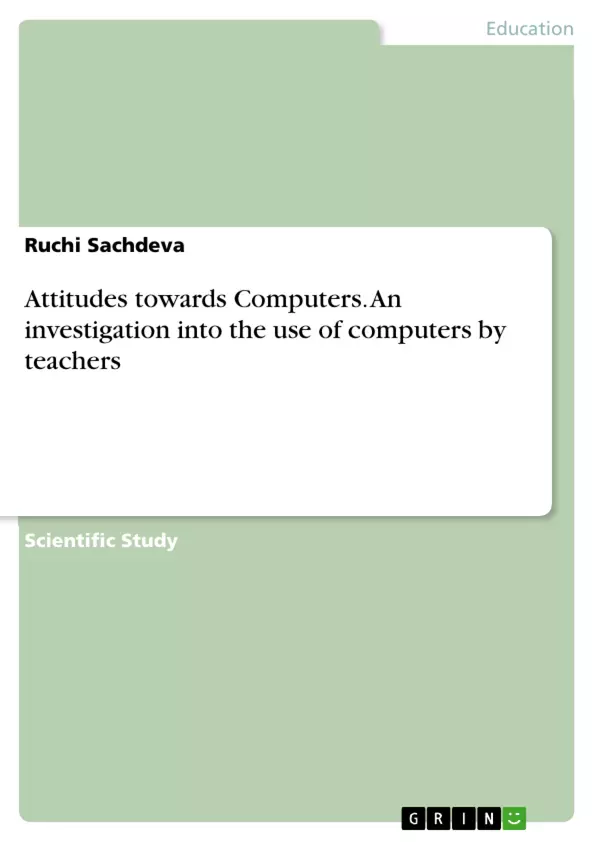Traditional or conventional teachers have a phobia of using technology like a fear of looking foolish, fear of asking for help, fear of not ‘catching on’ quickly enough, and fear of not being able to be effective with the technology in instructional settings. It is important to understand that these fears were self-imposed and self-generated, but very real nevertheless.
Technology has an essential role to play in reducing the disparities that exist between the developed and developing countries. Computers are especially important in this context, because so many computer applications have a direct bearing on some of the main facets of the development process and reflect certain aspects of the technology that has facilitated the growth of the economically advanced countries.
This study investigates the different attitudes towards computers and analyses them.
Table of Contents
- INTRODUCTION
- DEFINITION & CONCEPT OF ATTITUDE TOWARDS COMPUTER
- Attitude
- Student Attitude Towards Computer
- REVIEW OF LITERATURE
Objectives and Key Themes
This text aims to examine the attitudes of students towards computers and explore the factors that influence these attitudes. It investigates the concept of attitude towards computers and reviews existing literature on the subject, focusing on the development and use of computer attitude scales.
- Student attitudes towards computers
- Factors influencing computer attitudes
- Computer anxiety, confidence, and liking
- The impact of computer use on learning and achievement
- Gender differences in computer attitudes and use
Chapter Summaries
- INTRODUCTION: This chapter discusses the increasing importance of computers in education and society, highlighting their potential benefits and challenges. It also addresses the fears and anxieties some educators may have towards using technology in the classroom.
- DEFINITION & CONCEPT OF ATTITUDE TOWARDS COMPUTER: This chapter provides a comprehensive definition of attitude and explores how it relates to computer use. It focuses on the concept of "student attitude towards computer" and discusses the various factors that influence an individual's feelings towards computers, such as social issues, computer liking, confidence, and anxiety.
- REVIEW OF LITERATURE: This chapter examines existing research on computer attitudes and presents different computer attitude scales that have been developed and used. It highlights the work of various researchers and summarizes their findings on the relationship between computer attitudes, learning, and achievement, as well as gender differences in computer use.
Keywords
This text focuses on the key concepts of computer attitude, student attitudes towards computers, computer anxiety, computer confidence, computer liking, perceived usefulness, and gender differences in computer use. It also explores the relationship between computer attitudes and learning outcomes, as well as the role of technology in education.
- Arbeit zitieren
- Ruchi Sachdeva (Autor:in), 2016, Attitudes towards Computers. An investigation into the use of computers by teachers, München, GRIN Verlag, https://www.grin.com/document/339941



